By Karen Price
Twenty-five years ago, the historic Dietrich Theater in Tunkhannock was in disrepair.
A group of residents, determined to bring the downtown venue back, bought it sight unseen.
“(They say) they walked in and saw clouds roll by where the roof should have been,” Wyoming County Cultural Center executive director Erica Rogler said. “But they always envisioned the Dietrich would be a place not only for entertaining, but also education through the arts and humanities and a variety of different fields. They say now that it exceeded their expectations.”
After three years, $3 million raised and tremendous community support, the Dietrich reopened in 2001 and is now a hub for the humanities in Wyoming County. PA Humanities is a long-time supporter of both the venue and the Wyoming County Cultural Center, formed by the group that originally purchased the theater in 1997.
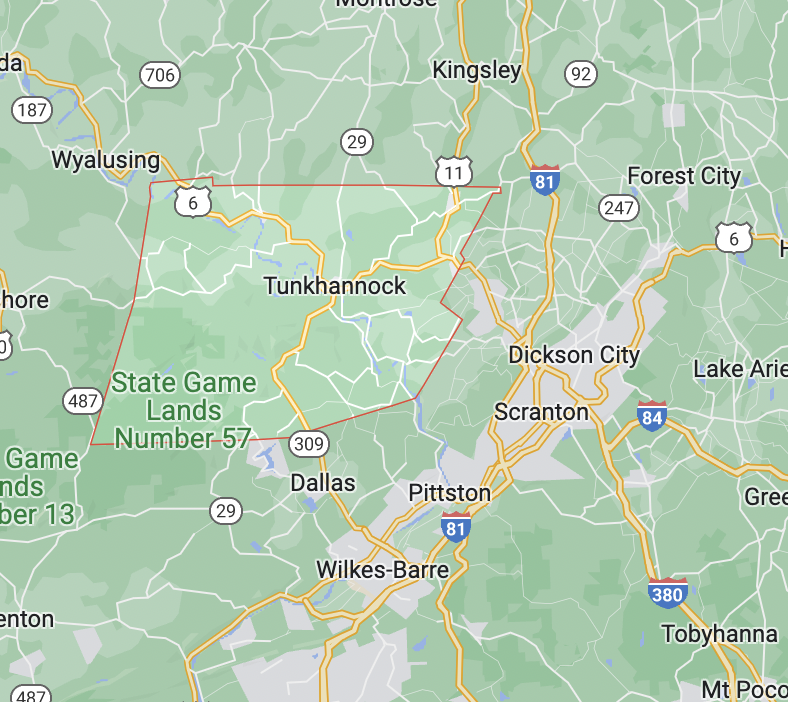
PA Humanities’ first grant to the center funded the very first Broadening Horizons film festival in 2003. The popular festival will now celebrate its 20th anniversary next year, and they still tell one particular story about the first time they showed a foreign film.
“Someone came up to our executive director at the time and said, ‘Is this one of those films you have to read?’” Rogler said. “And she said, ‘Yes, but I promise you won’t even realize you’re reading once you get 15 minutes in. But if you don’t like it, I’ll give you your money back.’ After it was over, the person came back to her and said, ‘I’m sold, I’ll return to these.’”
Today, you’ll often find groups of people gathered in discussion following screenings, whether in a planned session or spontaneously on their own. One community member was so moved by the screening of “The Eagle Huntress,” a 2016 documentary set in Mongolia about a young girl taking on the male-dominated ancient tradition of eagle hunting, that they ended up traveling to Mongolia, Rogler said.
It’s that type of exposure that is so vital for a community that doesn’t have a diverse population, said Rogler, who grew up in the area.
“I don’t think I was exposed to people of color or people from different backgrounds until I went to Penn State, and then the world opened up to me and I learned about different people, their different journeys in life and their stories and experiences,” she said. “I got to experience the arts and humanities there. When I came back and saw that they’d opened this cultural center I was so delighted to see that people could start having these experiences through film.”
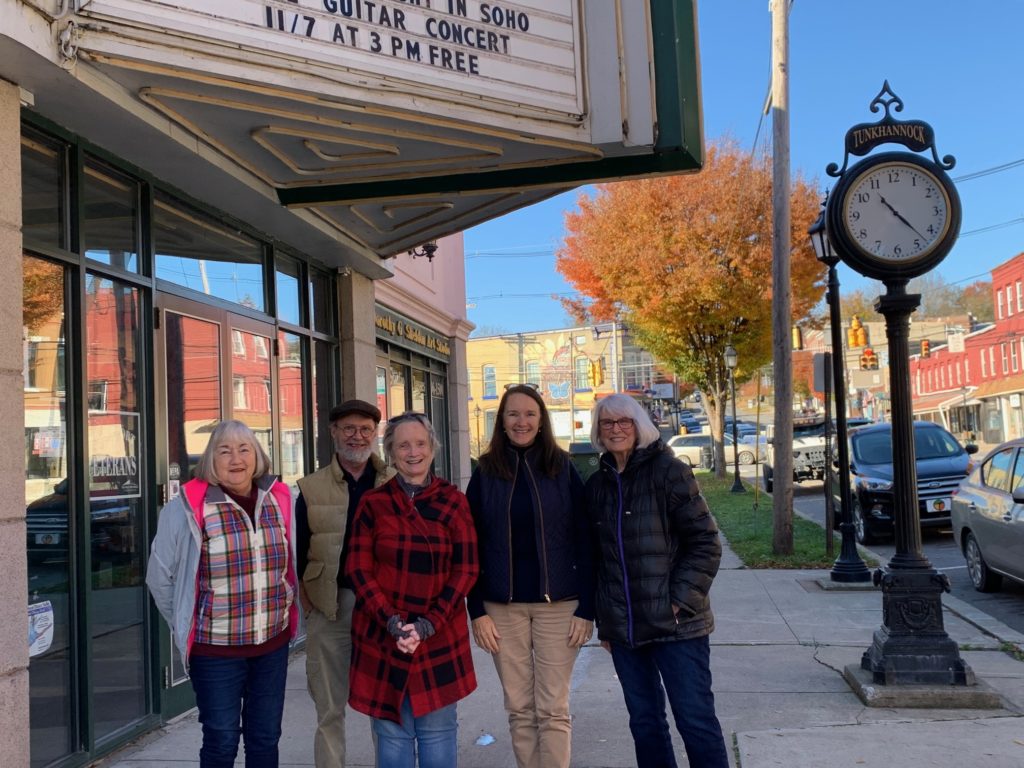
PA Humanities continues to support the film festival through the PA SHARP program – Sustaining the Humanities Through the American Rescue Plan. Another program the PA SHARP grant supports is called Readers Meeting Writers, which pairs sixth-grade students with local authors for discussions about what it’s like to be an author and the books themselves. The program also offers an after-school writing workshop.
Last school year, Rogler said, 120 sixth graders learned about the horrors of Nazi Germany from reading Newbury Honor Book author Susan Campbell Bartoletti’s young adult novel, “The Boy Who Dared.”
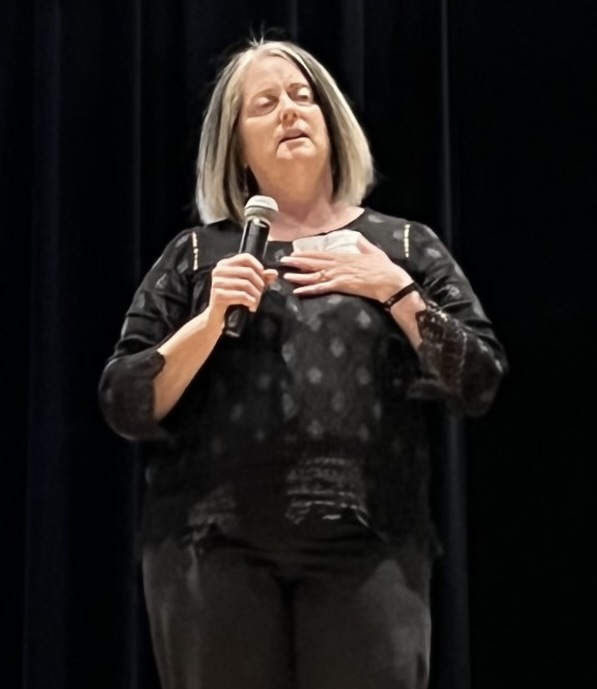
“It’s about a boy named Helmut Hubner who lives in Nazi Germany in World War II and stands up to the Germans and pays the ultimate price, but it opens up a discussion about the propaganda of the time, standing up for what you believe and the power of the individual,” Rogler said.
The students also read the book, “Together: A Journey of Survival,” by Ann S. Arnold, whose father survived the Holocaust. He’s now in his 90s, and the students got to meet him and ask questions, Rogler said.
“The students had amazing questions and it could have gone on and on,” Rogler said. “It raised all these questions and created a discussion that I don’t think they would have had any other way. That’s important in our community, where we lack diversity. It’s important to hear these stories and it was powerful to see how these writers impacted the students.”
The Dietrich Theater is also a place for community gathering. Wyoming County became a PA Heart & Soul community in 2021, and last spring the team wanted to celebrate and share with residents what they’ve learned so far about the community’s values and hopes for the future.
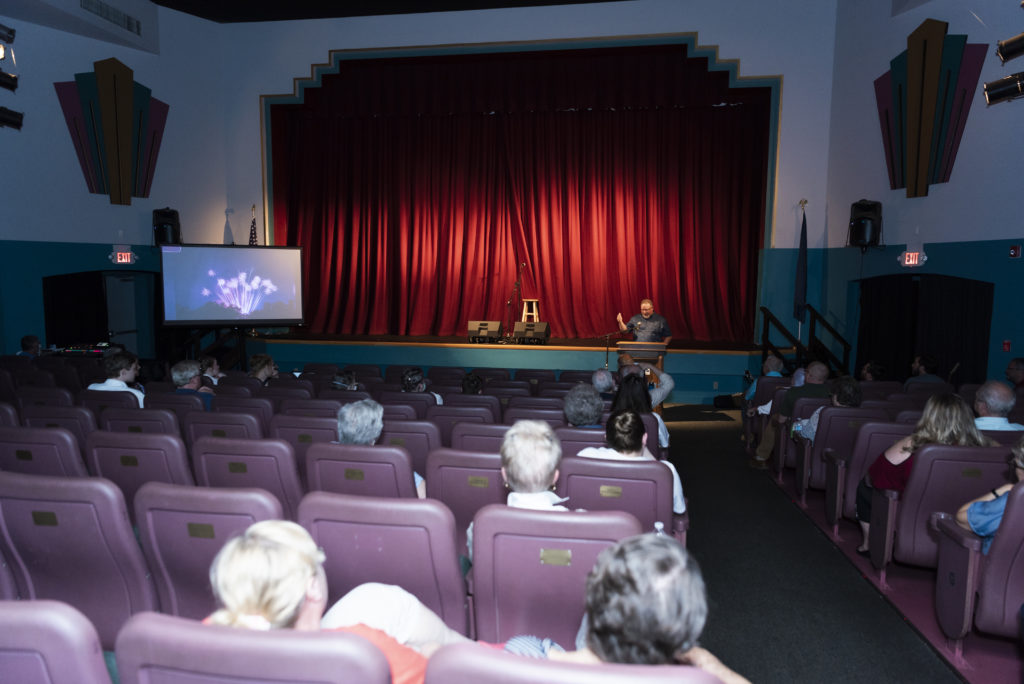
“We wanted to showcase what we love, but not just in spoken story,” project manager Deb Shurtleff said. “One gentleman who’s our story listener is also a storyteller, and we gleaned from him that stories are told in many ways. So we looked for artists, musicians, photographers and those who practiced other mediums who would all tell the story of what residents love about Wyoming County.”
Holding the event at the Dietrich was a natural fit.
“It was really just a celebration of what I’ve seen from working at the Cultural Center all these years, is that one of our most valuable assets is the people in Wyoming County and their willingness to share with others, from storytellers to artists to singer-songwriters,” said Rogler, who’s also part of the Heart & Soul team.
Another PA Humanities-supported program is called “Wyoming County Reads.” Last year, to coincide with the release of Ken Burns’ documentary on Ernest Hemingway, the group read “The Old Man and the Sea” and “A Farewell to Arms” and held a Zoom discussion with English scholar Bill Chapla. They also offered free screenings of both films, followed by discussion with the local PBS station’s education director.
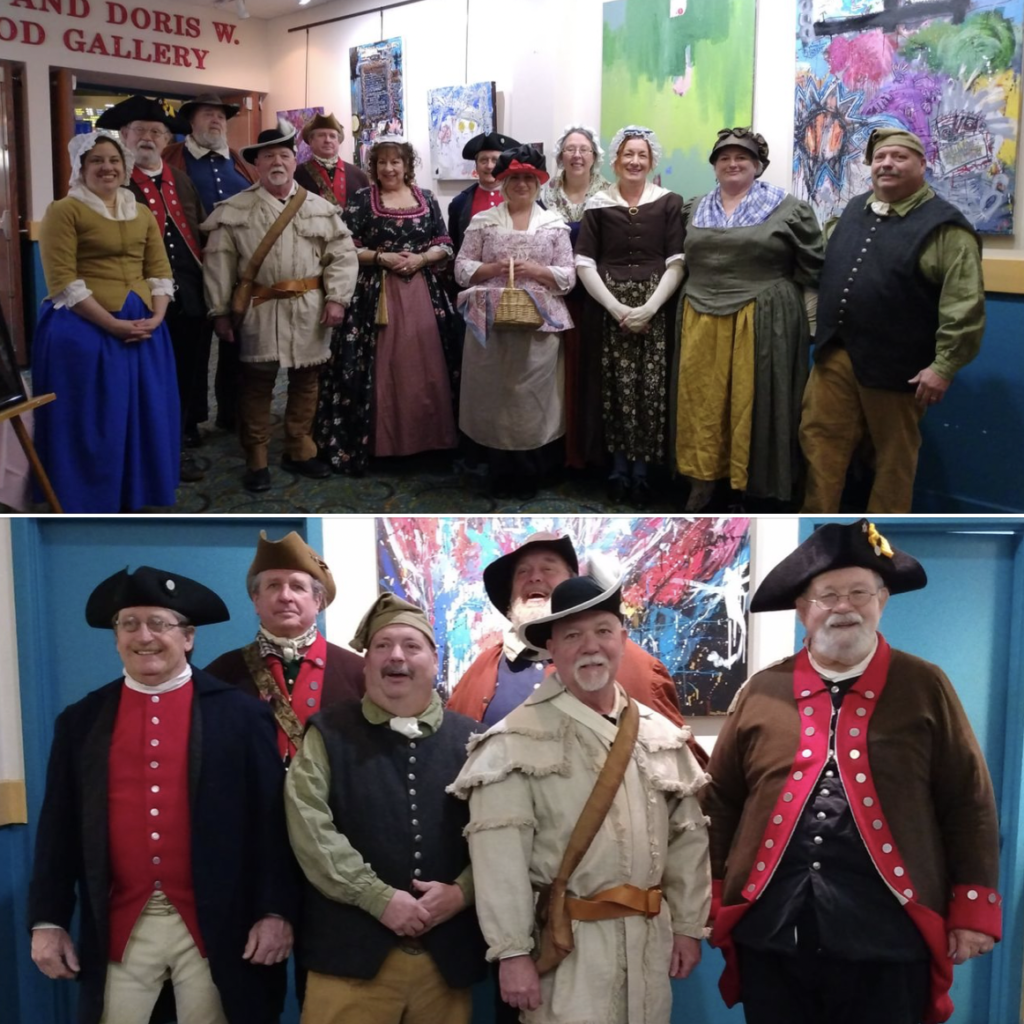
Community groups also use the Dietrich, including the Warrior Writers Group for military veterans and Hope Coalition, offering addiction recovery resources and support.
“I think it really helps to build community and create connections,” Rogler said. “We have a great relationship with so many different organizations. To have that space to meet and connect and create is invaluable for our community.”
One of the biggest impacts both Rogler and Shurtleff see from humanities programming at the Dietrich Theater is that it helps create empathy and understanding for the way others live. It also helps to illuminate the things that unite us, as does the PA Heart & Soul model of listening to one another’s stories.
“Listening is gaining an insight into how different people experience Wyoming County,” Shurtleff said. “It may not be how you experience it, but that stretches us out and gives us exposure to new things. I see that as a key part of the Dietrich as well because you’re able to be exposed to so many things. It opens up the world, and that’s such a big thing in a small community.”


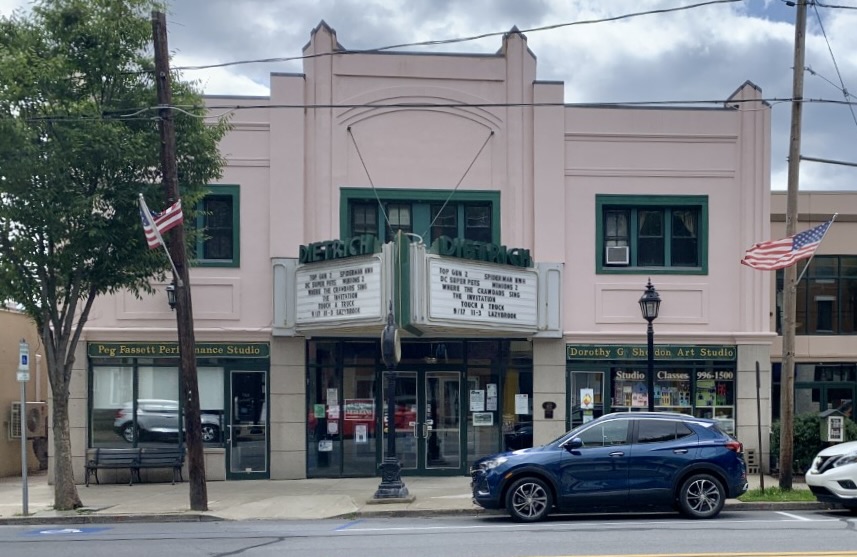
![[color – dark bg] PA SHARP FINAL FILES DB 72dpi [color - dark bg] PA SHARP FINAL FILES DB 72dpi](https://pahumanities.org/uploads/files/elementor/thumbs/color-dark-bg-PA-SHARP-FINAL-FILES-DB-72dpi-phgl7aimtfdpzt2rscvl43ksfv3asbbls19lsvuacw.jpg)


